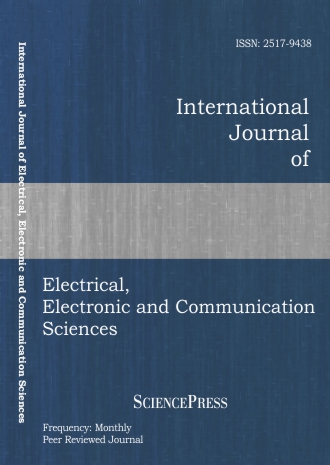
Scholarly
Volume:4, Issue: 11, 2010 Page No: 1608 - 1612
International Journal of Electrical, Electronic and Communication Sciences
ISSN: 2517-9438
1051 Downloads
Improvement of Stator Slot Structure based on Electro-Thermal Analysis in HV Generator
High voltage generators are being subject to higher voltage rating and are being designed to operate in harsh conditions. Stator windings are the main component of generators in which Electrical, magnetically and thermal stresses remain major failures for insulation degradation accelerated aging. A large number of generators failed due to stator winding problems, mainly insulation deterioration. Insulation degradation assessment plays vital role in the asset life management. Mostly the stator failure is catastrophic causing significant damage to the plant. Other than generation loss, stator failure involves heavy repair or replacement cost. Electro thermal analysis is the main characteristic for improvement design of stator slot-s insulation. Dielectric parameters such as insulation thickness, spacing, material types, geometry of winding and slot are major design consideration. A very powerful method available to analyze electro thermal performance is Finite Element Method (FEM) which is used in this paper. The analysis of various stator coil and slot configurations are used to design the better dielectric system to reduce electrical and thermal stresses in order to increase the power of generator in the same volume of core. This paper describes the process used to perform classical design and improvement analysis of stator slot-s insulation.
Authors:
References:
[1] F. Tim Emery and Dennis Pavlik, "Electrostatic field analysis of high